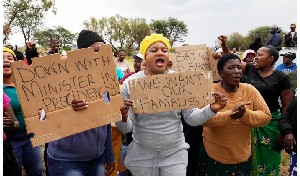University for Development Studies (UDS) has deployed a total of 7,185 students to 599 communities in the Bono, Northern, and Upper East Regions to undertake their Third Trimester Field Practical Programme (TTFPP) to contribute to community development.
This year’s TTFPP, which will end on July 27, also attracted three foreign university students from North Carolina, United States.
The TTFPP, which forms part of the academic activities of UDS, seeks to blend the academic field with the outside world by helping students to appreciate the realities of rural life such that they will develop positive attitudes to working in those areas.
Professor Gabriel Ayum Teye, Vice-Chancellor of UDS, who spoke at an orientation for the students on TTFPP ahead of their deployment in Tamale on Thursday, urged the students to provide useful services to their host communities such as teaching children to make positive impacts on their lives.
At the orientation, the students were educated on how to lead healthy lives, comport themselves and what to do when they faced any challenges in the communities.
Professor Teye urged the students to use the opportunity to generate useful and credible data to help in effective development planning towards addressing challenges of the communities.
He said the TTFPP was attracting interest from various universities in Europe, Canada and Africa, who wanted to join it to learn about its impact and possibly adopt it.
He, therefore, appealed to the government and other organisations and individuals to support UDS as it implemented the TTFPP to contribute towards community development.
Professor Seidu Al-hassan, Pro-Vice-Chancellor of UDS, advised the students to work as a team and ask relevant questions to generate useful information to aid development planning.
Professor Francis Obeng, a Senior Lecturer and Director of TTFPP, told the students that TTFPP was a rewarding experience as it would build them for the future, advising them to comport themselves well and respect the country’s laws and customs of the communities to live harmoniously with their host communities.
Regional News of Friday, 31 May 2019
Source: ghananewsagency.org

















